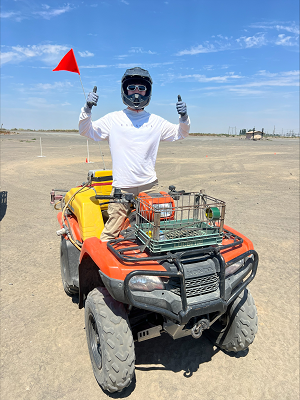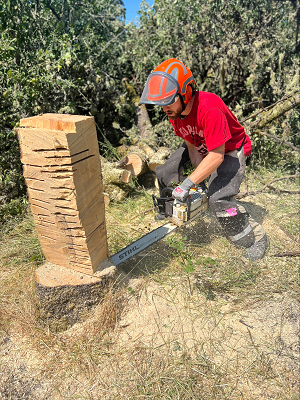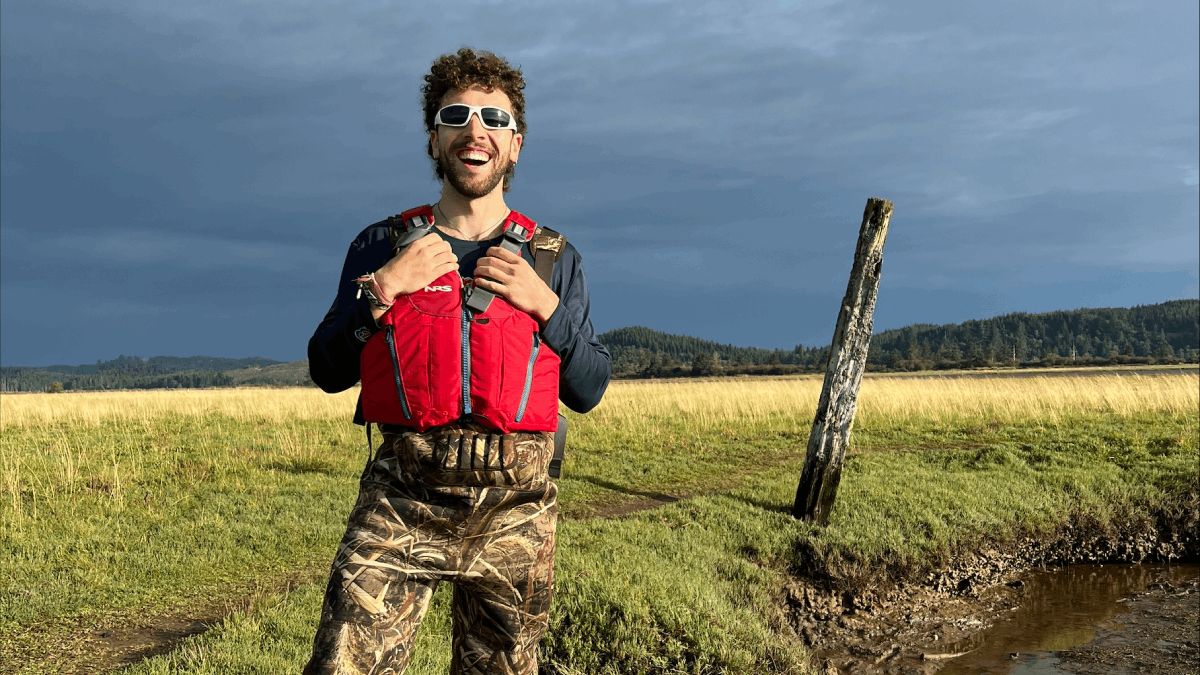Orhan Eribac
Applied MS, Environmental Health Sciences
Hometown
Roswell, GA
Future plans
Working at the intersection of public health and culture, perhaps with the Washington Department of Fish and Wildlife.
“It was the perfect blend of human and environmental health for me.”
- Orhan Eribac
This past summer, I interned with the Washington Department of Fish and Wildlife (WDFW). It meant the world to work with people who care so deeply about the beautiful ecosystems across our state.
Until I started working with WDFW, I was under the impression that the fields of health and safety and occupational hygiene primarily took place in industrial manufacturing environments where worker health and safety ultimately supports a corporation’s product output, regardless of how much these companies pollute the external environment.
Working with WDFW meant keeping workers safe and healthy so they can continue to do work that preserves the health and integrity of our state’s pristine ecosystems. It was the perfect blend of human and environmental health for me.

From green crab monitoring to ATV training
During my internship, I worked remotely when I wasn’t traveling across the state to conduct fieldwork. I conducted job hazard analyses (JHAs) for diverse types of fieldwork ranging from monitoring invasive European green crab populations in the mudflats on the coast to creating protocols for interactions with potentially dangerous wildlife in remote areas.
I also audited several staff trainings including ones focused on operating chainsaws, all-terrain vehicle (ATV) training courses, and a Motorboat Operation Training Course (MOTC) for scientific field workers. With this fieldwork came tasks like reviewing accident prevention programs (APPs), establishing sampling procedures for airborne contaminants in research labs, and generally supporting the Safety and Training team as they continue to build a robust agency-wide safety program.
Helping conduct ATV training courses in Eastern Washington is a memory I will keep forever. I supported staff who operate ATVs in the sand dunes of Moses Lake, the highlands of Omak and the forests of Winthrop, all while experiencing the breathtaking geological wonders our state has to offer along the way.

Putting learning into practice
This internship allowed me to put the concepts I have learned in the classroom and lab in the UW Department of Environmental & Occupational Health Sciences (DEOHS) into practice; it was so fulfilling to see the real-time impact I always hoped to make throughout my academic career.
Joining my academic experience with the diverse experiences of the WDFW safety team meant I learned something new every single day; I am forever grateful for the amazing folks I got to work with.
Being a graduate student at the UW means working on the cutting edge of our field in an academic environment where world-class professors show that they have just as much to learn from their students as we do from them.
I have always felt so welcome here and that professors have their students’ best interest in mind. I know the relationships I have built here will last a lifetime, and I will be forever grateful for my time as a Husky.




